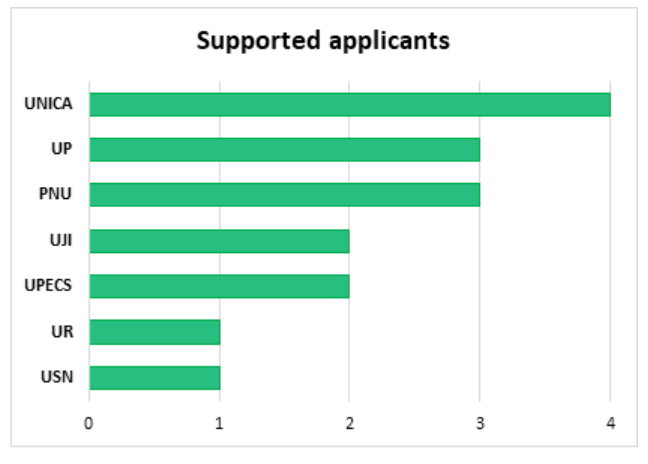
Like its predecessor EDUC-SHARE, EDUC-WIDE provides opportunities for researchers to access research infrastructures at EDUC universities through an open call. This time, due to the nature of the WIDERA project scheme, which provides funding for it, only research infrastructures of the Widening partners—Masaryk University (MUNI), Vasyl Stefanyk Precarpathian National University (PNU), and the University of Pécs (UPECS) - were eligible for use.
“In the run up to the call the list of research infrastructures not only from the Widening countries was updated in the OpenUp database. Out of a total of 46 facilities in the Widening countries, 23 were made available for research projects within this call. For the use of Ukrainian research infrastructures, sample shipping was envisaged due to the situation on the ground,” explains Task Leader Ondřej Hradil (MUNI).
Altogether 22 proposals were submitted to the call, with most researchers opting for infrastructures at Masaryk University and the University of Pécs. “I hope that in the second call, set to open in late 2025 or early 2026, we will see applications for Vasyl Stefanyk Precarpathian National University as well. The ongoing war in Ukraine is a challenge, but our colleagues at PNU continue to demonstrate expertise and strong engagement,” adds Ondrej Hradil.
After the technical feasibility assessment, 16 applications were approved and will receive support: 13 projects will be implemented at Masaryk University and another 3 at the University of Pécs (see Table 1).

Cryo-electron microscopy and genomics research facilities were in particularly high demand—highlighting their crucial role in current research efforts.
“EDUC-WIDE aims to support research across all disciplines, so we are pleased to see Humanities and Social Sciences topics among the supported projects,” says Ondrej Hradil.
Let's have a look where the successful applicants come from (Graph 1). The University of Cagliari led the way with four supported projects, followed by the University of Potsdam and Vasyl Stefanyk Precarpathian National University. Despite being an associated partner, the University of Rennes successfully utilized this opportunity to participate. Masaryk and Paris Nanterre universities, with no supported projects, simply did not submit applications.

Second Call for Access to Research Infrastructures
- EDUC-WIDE will launch a second call for Access to Research Infrastructures, once again limited to Widening Research Infrastructures.
- This time, the allocated funding will be doubled to nearly 90.000 EUR, exceeding the budget of the first call.
- The call is expected to open in late 2025 or early 2026.